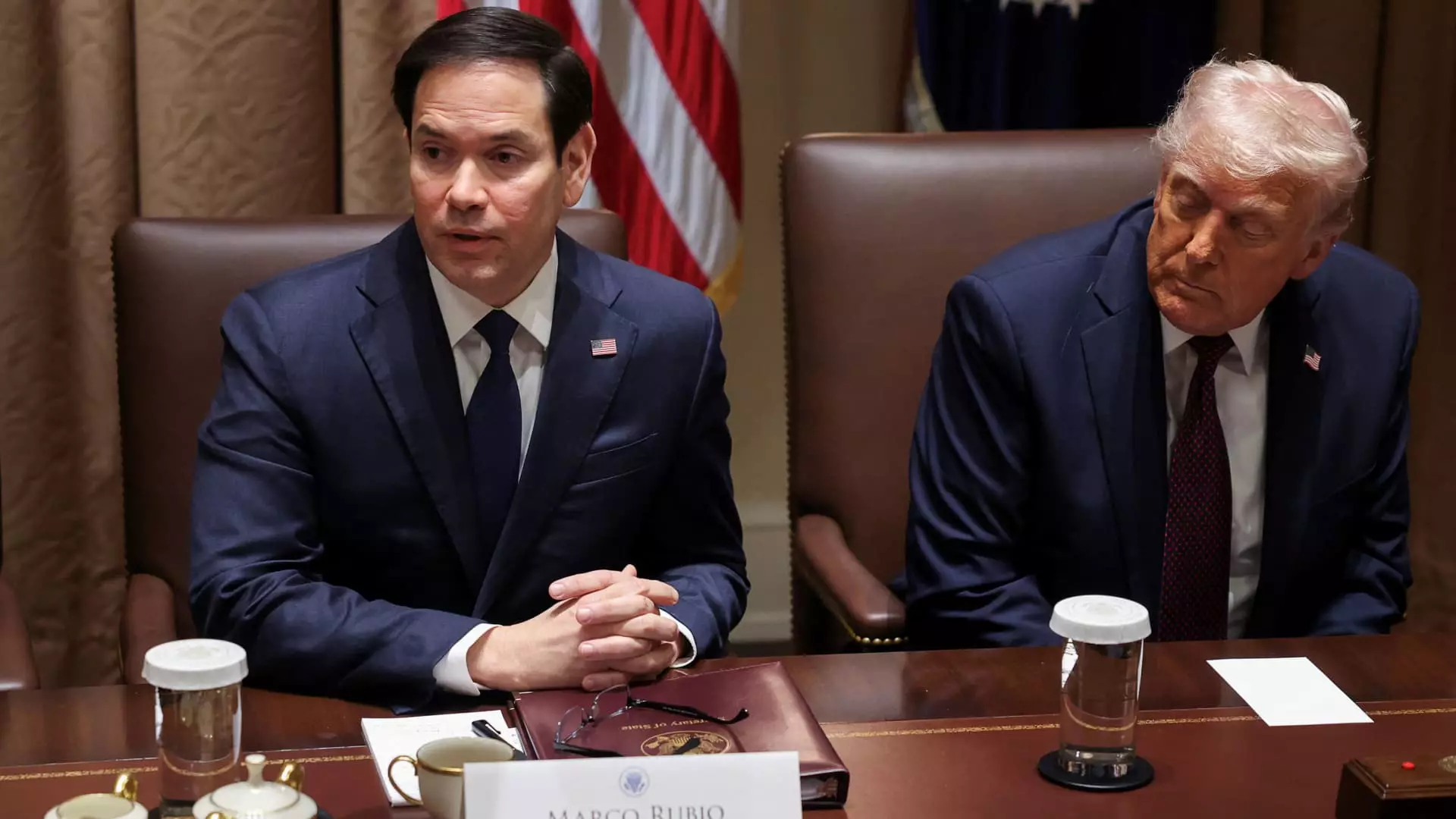In an alarming turn of events, the Trump administration is poised to implement sweeping changes to the U.S. State Department, as revealed by a draft executive order recently obtained by sources. This 16-page document is not merely a bureaucratic proposal; it appears to be a dismal blueprint for dismantling America’s long-standing diplomatic framework. By targeting what it deems “non-essential” operations across Southern Africa, as well as roles integral to democracy and human rights advocacy, the proposed changes signal a troubling departure from America’s global values. If enacted, these reforms may set off ripples that could diminish U.S. influence and credibility on the world stage.
The Erosion of Democratic Values
Among the most egregious proposals is the elimination of offices dedicated to climate action, women’s issues, and democracy, as well as the entire structure of human rights advocacy. These components have played key roles in shaping U.S. foreign policy as a force for good, facilitating essential dialogue and partnerships abroad. The proposed changes not only threaten these initiatives but offer an alarming indication of the administration’s disregard for global cooperation. Ignoring issues like climate change and women’s rights essentially sends the message that America is retreating from its moral leadership, sacrificing these values in favor of an “America First” doctrine that is myopic at best and reckless at worst.
Consolidation and the Cost of Narrowed Focus
The reorganization aims to condense the State Department’s regional operations into just four corps: Eurasia, Mid-East, Latin America, and Indo-Pacific. This heavy-handed consolidation will not merely streamline processes; it risks oversimplifying the complexities of international relations. Diplomacy is not merely transactional but deeply intricate and nuanced. The reduction of onsite American diplomatic personnel could lead to misinterpretation of regional dynamics and policy failures, inadequately addressed through a one-size-fits-all approach.
By drastically cutting the diplomatic presence in crucial areas like Canada, as well as in Sub-Saharan Africa, the administration dangerously blurs the lines between collaboration and isolation. Embassies serve not only as connection points but as symbols of commitment; shuttering them sends a negative message to allies about America’s intentions and reliability.
Altering Diplomatic Recruitment: A Question of Ideological Loyalty
Another shocking aspect of the draft is the proposed overhaul in the way diplomats are selected. The traditional Foreign Service Officer Test is to be scrapped, replaced with an evaluation system that gauges candidates on their alignment with the president’s foreign policy vision. This shift raises grave concerns about the intelligence and effectiveness of American diplomacy. It suggests a willingness to prioritize ideological conformity over competency, which threatens the integrity and effectiveness of the diplomatic corps.
The notion that diplomatic positions would hinge upon a candidate’s alignment with presidential ideals, rather than their expertise, represents a corrosive turn towards nepotism and cronyism within government. This could ultimately manifest in less experienced personnel exerting influence on critical international issues, potentially leading to disastrous outcomes that could have been avoided.
A Culture of Fear and Compliance
The draft executive order further states that any current foreign service officers who oppose this regional restructuring can take part in a buyout program—a clear signal that dissent will not be tolerated. This creates an atmosphere of fear and compliance within the State Department, stifling diverse perspectives that are vital for robust debate and comprehensive policy-making. It also undermines the very essence of diplomacy—open dialogue—by potentially sidelining informed, critical voices who might have the expertise to challenge or question the direction of U.S. foreign policy.
In essence, the administration’s proposal is not just a matter of restructuring; it is an affront to the principles of open governance and independent diplomacy that have guided U.S. foreign relations for decades. As these potential changes loom ominously, it is imperative that citizens call on their representatives to stand against an isolationist agenda that threatens to erode the moral fabric of American diplomacy. The approach proposed in this draft executive order goes beyond mere management strategies—it’s a calculated dismantling of the very machinery that gears U.S. engagement with the globe.


Leave a Reply